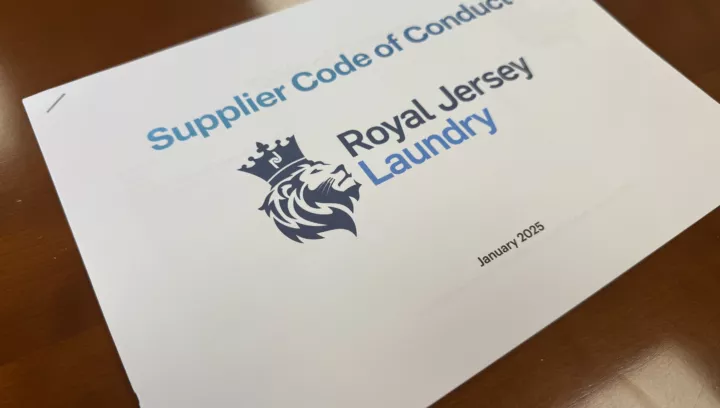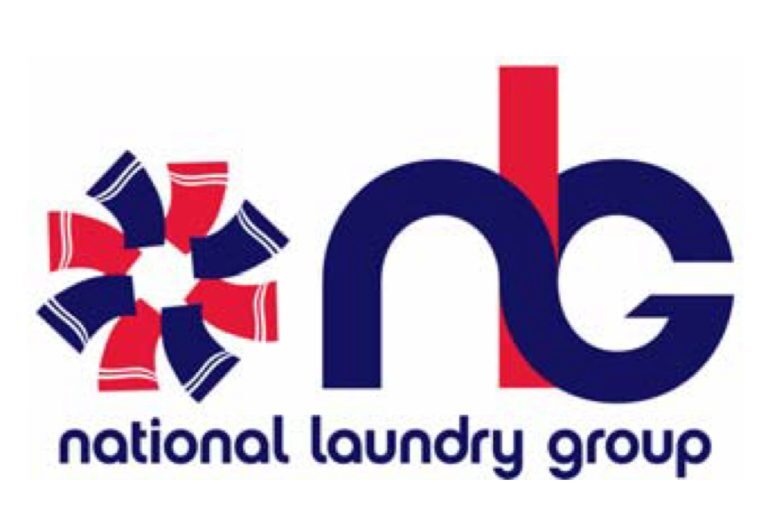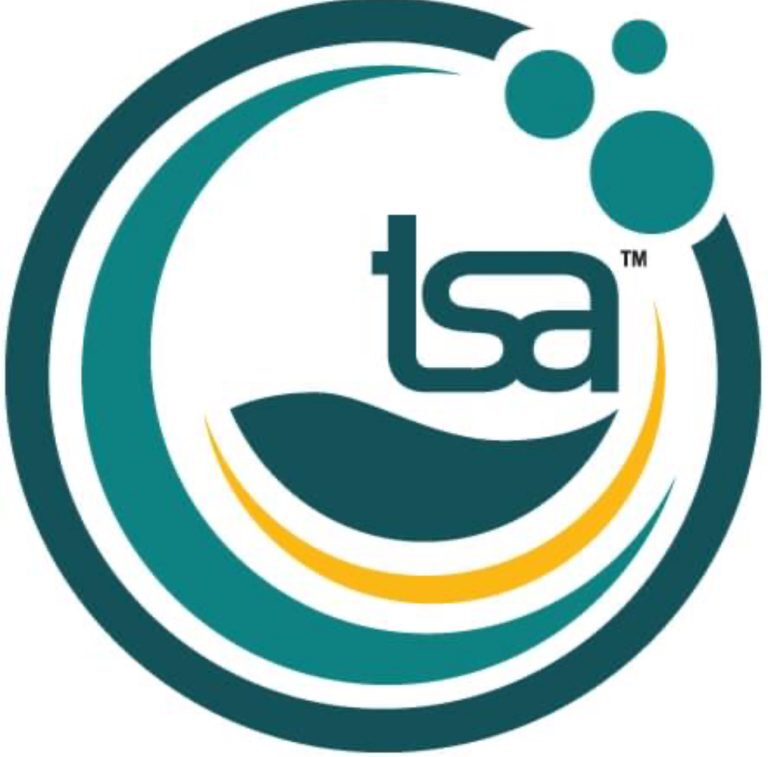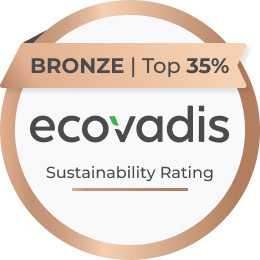How does Royal Jersey Laundry engage with our suppliers on Sustainability?
Our commitment to working with our suppliers for a sustainable future...

Our commitment to working with our suppliers for a sustainable future...

CODE OF CONDUCT 2025
Purpose
The following describes Royal Jersey’s (RJL) expectations for its suppliers in the areas of integrity, ethical and legal
standards, compliance, confidentiality, gifts, gratuities and business meals, labor rights and employment
law, health and safety, environment, anti-bribery and corruption, fair competition and supplied materials
(Supplier Code). This Supplier Code establishes a framework that RJL considers
important to the management of laundry, distribution, and supply-chain operations. This includes
minimising adverse impacts to the environment, ensuring a healthy and safe workplace, maintaining fair
and reasonable labor practices, and ethical sourcing of materials supplied to RJL.
Scope
This Supplier Code applies to the selection and retention of all suppliers that provide goods or services to
RJL, including raw material suppliers, semi-finished or finished goods suppliers, packaging
suppliers, contractors, contract manufacturers, service and transportation providers. Suppliers are
expected to comply with this Supplier Code in the course of doing business with RJL and its
employees.
Policy
Integrity, Ethical & Legal Standards
Royal Jersey Laundry is committed to upholding the highest legal and ethical standards at all times and in all places
where we conduct business. Our Code of Conduct (Code) provides basic guidelines to assist us in
making good decisions:
ï on behalf of the Company,
ï in doing our jobs ethically, and
ï in compliance with policies and the laws of the countries where we do business.
Confidentiality
Information to which Royal Jersey Laundry employees may have access may be proprietary or confidential in nature.
RJL places great value on its confidential and proprietary information. Equally, RJL employees are
obligated to respect and protect the confidences of our Suppliers by not divulging their proprietary or
confidential business information. Should confidential information desire to be shared, it is both RJL
and the Supplier’s responsibility to make sure the necessary confidentiality/non-disclosure agreements
are in place and limit disclosure of proprietary information only to those who have a legitimate business
need to know.
IT Security
Suppliers will maintain and enforce physical and information security procedures that meet or exceed
industry standards. Except to the extent directly caused by RJL, they will be responsible for any and all
security breaches and the reasonable costs of remediation. If a supplier discovers and is notified of a
breach or potential breach of physical or information security, they will promptly notify RJL of such
breach or potential breach and will promptly investigate and take all commercially reasonable steps to
cure the breach.
Gifts, Gratuities & Business Meals
RJL does not allow improper influence, or even the appearance of improper influence, in our decision-
making with Suppliers. Because of this, RJL Supply Chain employees cannot give to or receive from
Suppliers, gifts or gratuities, no matter how small the monitory value.
RJL Supply Chain employees may only give to or receive from Suppliers customary business meals,
provided the expenses involved are:
ï kept at a reasonable level,
ï include only those with a legitimate business reason for being present,
ï are infrequent, and
ï are not prohibited by law or known Supplier business practices.
Suppliers are expected to comply with these standards in the course of doing business with RJL
Supply Chain employees. These requirements are set forth in the RJL Anti-bribery and Corruption Policy
for our Supply Chain, which is more restrictive than the Code.
Labor Rights & Employment Law
RJL is committed to respecting human rights standards, as defined by the Human rights act 1998.
Suppliers are expected to comply with all local country labor and employment laws and regulations,
including those related to wages, hours worked, working conditions and child labor. Suppliers are
expected to adopt sound labor and employment practices and to treat their workers fairly. Specifically:
Employment Practices | Suppliers must hire and employ workers in compliance with applicable
laws. Wages, benefits, and working hours are expected to be fair and reasonable in the local
labor market.
Child Labor | Suppliers must comply with the applicable local laws regarding the minimum hiring
age for employees. If no such law exists or if the existing local law permits the hiring of
employees younger than 18 years of age, the Supplier may not employ employees less than 18
years of age.
Forced Labor | RJL expects Suppliers to not use labor that is a result of mental or physical
coercion, physical punishment, involuntary, exploitative or other oppressive labor conditions.
Suppliers and their employees are prohibited from engaging in any form of human trafficking.
Discrimination | Suppliers must respect the right of every person to participate in all aspects of
employment without regard to their personal characteristics or beliefs (for example, their race,
color, religion, age, disability, marital status, veteran status, gender, gender identity, sexual
orientation, ethnic or national origin). Suppliers’ policies and practices should result in
employment decisions being made on the basis of the workers’ ability to do the job, and not on
their personal characteristics or beliefs.
Freedom of Association | Open communication and direct engagement with workers to resolve
workplace and compensation issues is encouraged. Suppliers shall respect the rights of workers,
as set forth in local laws, to associate freely, join or not join labor unions, seek representation and
join workers’ councils. Workers shall be able to communicate openly with management regarding
working conditions without threat of reprisal, intimidation or harassment.
RJL also has a Anti-modern Slavery and Human Trafficking Policy. This Policy is our approach to combatting human
trafficking and documents how RJL complies with the requirements of the Anti-modern Slavery Act 2015.
This act is part of our core values to protect and advance human
dignity and human rights in our business practices.
Health & Safety
Suppliers shall comply with all applicable health and safety laws and regulations by providing a safe and
healthy working environment. The health and safety elements include:
Identifying Risk and Process Safety | Suppliers shall identify both occupational and external
hazards and have programs in place, appropriate to the risks, to actively prevent or mitigate these
risks (e.g., catastrophic releases of chemicals, fumes, dust, etc.).
Worker Protection | Suppliers shall protect workers from exposure to chemical, biological and
physical hazards and physically demanding tasks in the workplace, including in any company-
provided living quarters.
Emergency Preparedness and Response | Suppliers shall identify and assess emergency
plans across the entire facility and any company-provided living quarters and minimise the impact
of any emergency by implementing suitable emergency plans and response procedures.
Hazard Information | Suppliers shall provide safety information relating to hazardous materials
(including raw materials), isolated intermediates, products, solvents, cleaning agents, and wastes
to educate workers and train and protect workers from potential hazards.
Environment
Suppliers shall operate in an environmentally responsible and efficient manner and minimise adverse
impacts on the environment. Suppliers are encouraged to conserve natural resources, avoid the use of
hazardous materials where possible, and engage in activities that reuse and recycle. The environmental
elements include:
Environmental Authorisations | Suppliers shall comply with all applicable environmental laws
and regulations. All required environmental permits, licenses, information registrations and
restrictions shall be obtained, be active and their operational and reporting requirements followed.
Waste and Emissions | Suppliers shall have systems in place to ensure the safe handling,
movement, storage, recycling, reuse, or management of waste. Any generation and disposal of
waste, emissions to air and discharges to water with the potential to adversely impact human
health or the environment s.hall be appropriately minimised, and properly managed, controlled or
treated prior to release into the environment.
Spills and Releases | Suppliers shall have systems in place to prevent and mitigate accidental
spills and releases to the environment
Sustainability and Efficiency of Resources | Suppliers shall have systems in place to optimise
the use of all relevant resources sustainably, such as energy, water, and materials. Suppliers
shall set clear environmental performance targets and look for ways to continuously improve your
performance in collaboration with internal and external stakeholders. A Supplier must disclose
information regarding carbon/greenhouse gas and water reduction commitments and provide any
requested information on which impacts RJL’s greenhouse gas emissions reporting and/or
other information consistent with industry standard greenhouse gas emissions reporting.
Anti-Bribery and Corruption
The RJL Anti-Corruption Policy reinforces the commitment to ensure compliance with all anti-
corruption laws, including the UK Bribery Act 2010.
All corruption, extortion and embezzlement are prohibited. Suppliers shall comply with all applicable laws,
regulations and industry standards related to anti-corruption. Suppliers shall not pay or accept bribes or
participate in other illegal inducements in business or government relationships or make any other
inducement (including facilitation payments, gifts and hospitality, grants or donations) in relation to their
business with RJL.
Fair Competition
RJL has an open and fair entry process that allows potential suppliers, regardless of nationality, size,
and experience, the same chance to offer us their products or services. We select our business partners
based on economic reasons such as the quality, price, volume, capacity, and lead times. In addition, we
also consider comprehensively things like safety, environmental awareness, company stability, and
innovation/development ability.
RJL believes in free healthy competition and fair business practices. We do not allow business practices that
seek unfair advantages or misrepresent facts about our business or products. Additionally, we do not
allow false or misleading statements about our competitors or their products. Likewise, Suppliers shall
follow the laws that preserve a fair and competitive marketplace, such as anti-trust laws. Suppliers shall
employ fair business practices, including accurate and truthful advertising.
Supplier Diversity
RJL values building a more equitable marketplace by including minority and women-owned
businesses, small businesses, and businesses owned by people from traditionally under-represented
groups, depending on geography, into our sourcing practices.
We expect our Suppliers to share in our vision, and that our Suppliers work towards starting, maintaining,
or growing programs that include under-represented business communities, and report those outcomes to
RJL when appropriate.
Supplied Materials
Paper Procurement | RJL is aligned with the efforts of global organisations to responsibly
manage paper and wood products to minimise environmental impacts across their entire life
cycle. We expect our Suppliers to share in our commitment to increase the sustainability of paper
products that we purchase. RJL expects Suppliers to provide paper and wood products where
the raw material source (e.g., wood) is not: illegally harvested; harvested in violation of traditional,
indigenous and civil rights; harvested in forests where high conservation values (e.g., old growth,
endangered forests) are threatened; harvested in forests being converted to plantations or non-
forest use; or harvested from plantations using genetically modified trees.
Plastic Procurement | RJL is aligned with the efforts of UK to responsibly reducing plastic waste.
Particularly focusing on single use plastics and the suppliers responsibility to
manage plastic products, minimising the environmental impacts across their entire life
cycle. We expect our Suppliers to share in our commitment to increase the sustainability of plastic
by removing single use plastic.
Where plastics are necessary then recycled plastics should be used example 30/70 recycled plastic.
Explanation of Key Terms
Suppliers | Any person or entity that provides goods or services to RJL, including raw
material suppliers, semi-finished or finished goods suppliers, packaging suppliers, contractors, contract
manufacturers, and service providers.
Responsibility
Suppliers are expected to comply with this Supplier Code in the course of doing business with RJL and
its employees.
Compliance
Suppliers to RJL must comply with all applicable laws, codes and regulations of the countries, states
and localities in which they operate. Additionally, they must comply with all standards contained in this
Supplier Code and, as applicable, RJL’s Code of Conduct. Suppliers will maintain compliance systems
and be able to demonstrate a satisfactory record of compliance with laws, regulations and this Supplier
Code in the conduct of their business.
Reporting
If, at any time, this Supplier Code is perceived as being compromised in any way, please report your
good faith concern to RJL’s Helpline – phone numbers by are available on our website.
Alternatively you can email us at info@rjlaundry.co.uk. Concerns will
be addressed promptly with care, respect, and confidentiality to the fullest extent possible.



